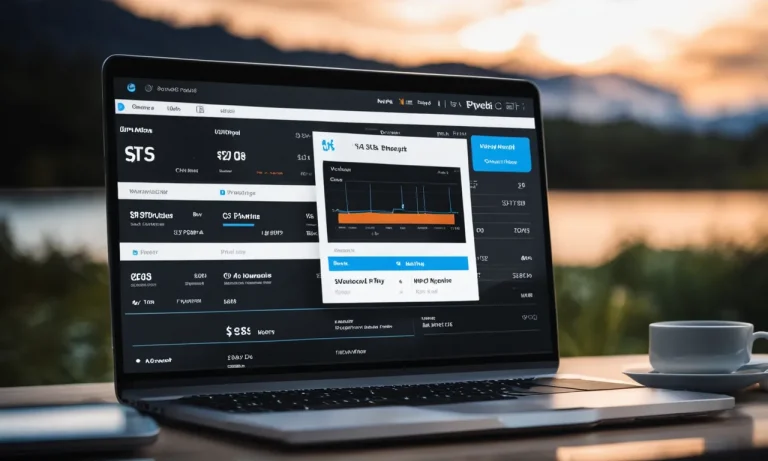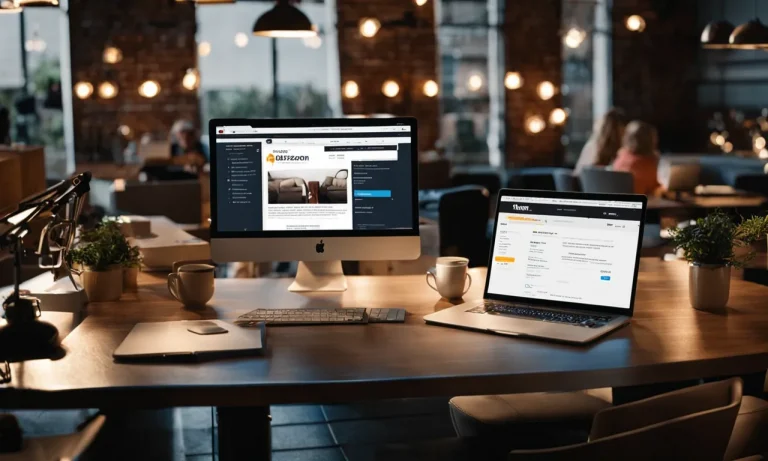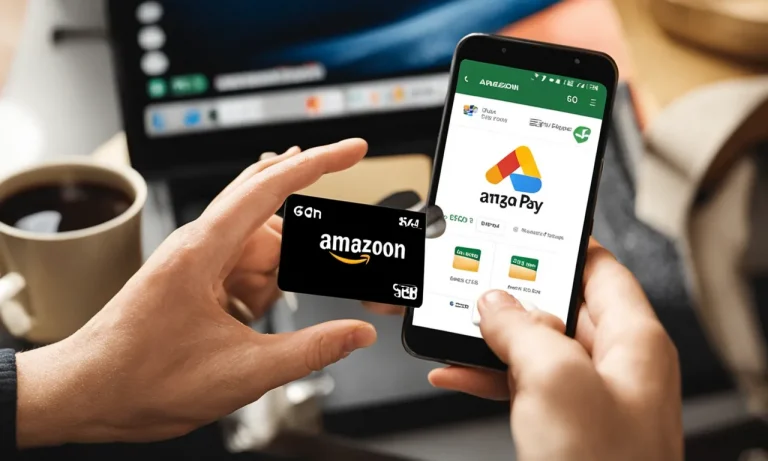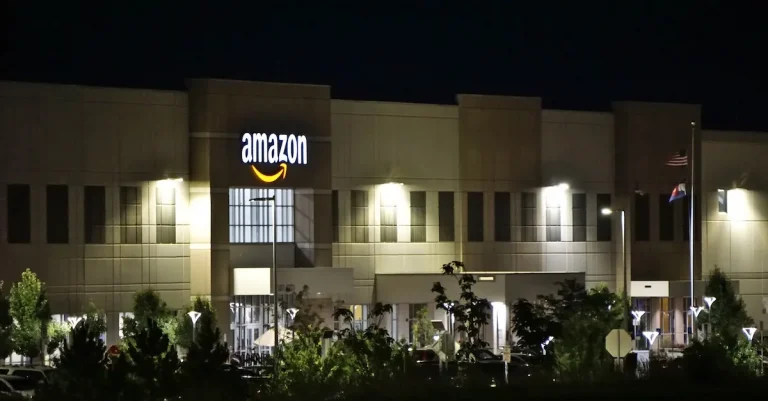How Much Do Coin Dealers Pay For Coins? A Detailed Guide
Selling coins can be a great way to turn your unwanted change into extra cash. But how much can you really expect to get from coin dealers?
This comprehensive guide will walk you through everything you need to know about how coin dealers determine the value of coins and how much they pay.
If you’re short on time, here’s a quick answer: Coin dealers typically pay anywhere from 90-95% of a coin’s retail value, depending on rarity, condition, precious metal content, and demand. Common circulated coins often fetch 10-25% of face value.
Key factors like grade, mintage, and errors dramatically impact potential payout.
In this detailed guide, we’ll cover the key factors coin dealers consider when making offers, typical payout percentages for different coin types, how to safely sell coins for maximum profit, and more.
Read on to learn how the coin buying process works and how to successfully sell your coins to dealers for a fair price.
How Coin Dealers Determine a Coin’s Value
When it comes to determining the value of a coin, coin dealers take various factors into consideration.
These factors help them determine the worth of a coin and ultimately decide how much they are willing to pay for it. Let’s take a closer look at some of the key factors that coin dealers consider:
Examining Condition and Grade
The condition and grade of a coin play a crucial role in determining its value.
Coin dealers carefully examine the physical condition of a coin, looking for any signs of wear, damage, or cleaning. They also assess the coin’s overall appeal, such as its luster and eye appeal.
The grade of a coin, which ranges from poor to perfect, is also taken into account.
Coin grading is a standardized process that involves evaluating the coin’s condition and assigning it a grade based on a scale. The higher the grade, the more valuable the coin becomes.
Checking Rarity and Mintage
Rarity and mintage are important factors in determining a coin’s value. Coin dealers consider how many coins of a particular type were minted and how many still exist today.
Generally, the rarer a coin is, the higher its value.
Coins with low mintage numbers or those that were only produced for a limited time period tend to be more valuable.
Coin dealers often consult reference books, historical records, and online databases to determine the rarity and mintage of a coin.
Accounting for Precious Metal Content
For coins made of precious metals such as gold or silver, the bullion value plays a significant role in determining their worth.
Coin dealers consider the current market price of the metal and calculate the coin’s intrinsic value based on its weight and purity.
This bullion value is separate from any numismatic value that the coin may have. Coin dealers often use specialized equipment, such as electronic scales and metal analyzers, to accurately assess the precious metal content of a coin.
Assessing Current Demand and Trends
Market demand and trends also influence a coin’s value. Coin dealers stay up-to-date with the latest market trends, collector preferences, and auction results.
They take into account factors such as the popularity of certain coin series, historical events, and the overall demand for specific coins.
By keeping a finger on the pulse of the market, coin dealers can accurately assess the current demand for a coin and adjust their pricing accordingly.
What Percentage of Value Do Coin Dealers Pay?
When it comes to selling coins, one of the most common questions collectors have is how much coin dealers are willing to pay.
While the exact percentage may vary depending on various factors, there are some general guidelines to keep in mind.
Here is a detailed breakdown of what percentage of value you can expect when selling different types of coins.
Circulated Common Coins: 70-90% of Face Value
For circulated common coins, such as those commonly found in pocket change, coin dealers typically pay around 70-90% of the face value. This is because these coins are readily available and not in high demand among collectors.
However, keep in mind that certain factors like rarity, condition, and demand can affect the price.
Uncirculated Modern Coins: 50-80% of Retail Value
When it comes to uncirculated modern coins, which are usually in pristine condition and have a low mintage, coin dealers are willing to pay a higher percentage of the retail value.
On average, you can expect to receive around 50-80% of the retail value for these coins.
However, it’s essential to note that the specific percentage will depend on factors like demand and rarity.
Rare Coins in Mint State: 70-90% of Retail Value
For rare coins in mint state condition, coin dealers are willing to pay a higher percentage of the retail value.
These coins are highly sought after by collectors, and their scarcity drives up their price.
On average, you can expect to receive around 70-90% of the retail value when selling these coins to dealers. However, keep in mind that the exact percentage may vary depending on the coin’s rarity and condition.
Key Date and Low Mintage Coins: 80-90%+ of Retail Value
Key date and low mintage coins are the cream of the crop for coin collectors. These coins have a limited number in circulation and are highly sought after due to their rarity.
Coin dealers are willing to pay a premium for these coins, often offering around 90-95% (or even higher) of the retail value.
The exact percentage will depend on the specific coin and its desirability among collectors.
It’s important to note that these percentages are just general guidelines. The actual price you receive from a coin dealer will depend on various factors, including the specific coin, its condition, rarity, and current market demand.
To get the most accurate valuation for your coins, it’s always a good idea to consult with multiple dealers or consider getting a professional appraisal.
How to Get the Most Money When Selling Coins
Have Coins Professionally Graded and Certified
If you want to maximize the amount of money you receive when selling your coins, consider having them professionally graded and certified.
Grading is the process of determining the condition and authenticity of a coin, while certification is the official documentation that verifies these details.
Coins that have been graded and certified by reputable grading companies are generally more desirable to collectors and investors, which can increase their value.
Research Dealers’ Reputations and Payment Histories
Before selling your coins, it’s essential to research the reputations and payment histories of coin dealers.
Look for dealers who have a long-standing presence in the industry and positive feedback from previous sellers.
Get Multiple Offers and Negotiate
When selling your coins, don’t settle for the first offer you receive. Instead, reach out to multiple dealers and request quotes for your coins.
This will give you a better understanding of the market value and allow you to compare offers.
Remember, it’s essential to negotiate with the dealers to get the best price possible. Be prepared to provide evidence of the coin’s condition, rarity, and any unique features that may increase its value.
By getting multiple offers and negotiating, you increase your chances of getting the most money for your coins.
Sell in Person at a Coin Show for Better Prices
If you’re looking to get the highest prices for your coins, consider selling them in person at a coin show. Coin shows are gatherings where dealers and collectors come together to buy and sell coins.
These events often attract a wide range of buyers, allowing you to showcase your coins to a larger audience.
By selling in person, you have the opportunity to engage in face-to-face negotiations and potentially receive better offers than you would through online platforms.
Coin shows can be found in various locations, and websites like CoinShows provide information about upcoming shows in your area.
By following these strategies, you can increase your chances of getting the most money when selling your coins.
Remember to have your coins professionally graded and certified, research dealers’ reputations and payment histories, get multiple offers, and consider selling in person at a coin show.
These steps will help you navigate the coin selling process and ensure you receive a fair and competitive price for your valuable coins.
Avoiding Scams and Finding Reputable Coin Buyers
Watch Out for ‘We Buy Gold’ Stores and Pawn Shops
When looking to sell your coins, it’s important to be cautious of certain establishments, such as “We Buy Gold” stores and pawn shops.
While they may advertise that they also buy coins, their primary focus is often on precious metals like gold, silver, and platinum.
Coin dealers who specialize in numismatics are generally more knowledgeable about the value and rarity of coins. It’s best to seek out reputable coin dealers who have expertise in the specific type of coins you’re looking to sell.
Research Dealers Online and Check Credentials
Before selling your coins, take the time to research coin dealers online. Look for reviews and testimonials from other sellers to get an idea of their reputation.
Additionally, check if the dealer is a member of professional numismatic organizations, such as
.
These organizations have strict membership requirements and can provide assurance that the dealer adheres to a code of ethics.
Don’t Clean or Alter Coins Before Selling
While it may be tempting to clean or alter your coins to make them appear more presentable, it’s best to resist the urge.
Coin dealers prefer to see coins in their original condition, as alterations can potentially reduce their value.
Cleaning coins improperly can also cause damage and further decrease their worth. Leave the cleaning and preservation to the experts if necessary.
Use Escrow Services For Mail-In Transactions
If you’re considering selling your coins through a mail-in transaction, it’s crucial to use an escrow service.
Escrow services act as a trusted intermediary, holding the buyer’s payment in escrow until the coins are delivered and verified by the buyer.
This provides an added layer of security and reduces the risk of fraud. Research reputable escrow services and choose one that is well-established and trusted within the numismatic community.
Conclusion
Selling coins can be a lucrative way to earn extra income from your old change, but only if you take the time to understand dealer payouts and how coin values are assessed.
With some effort researching potential buyers, grading your coins, and negotiating fair offers, you can maximize your profit.
We hope this guide gave you a comprehensive overview of what to expect when selling coins to dealers. Armed with this knowledge, you can confidently turn your unused coins into cash in hand.








